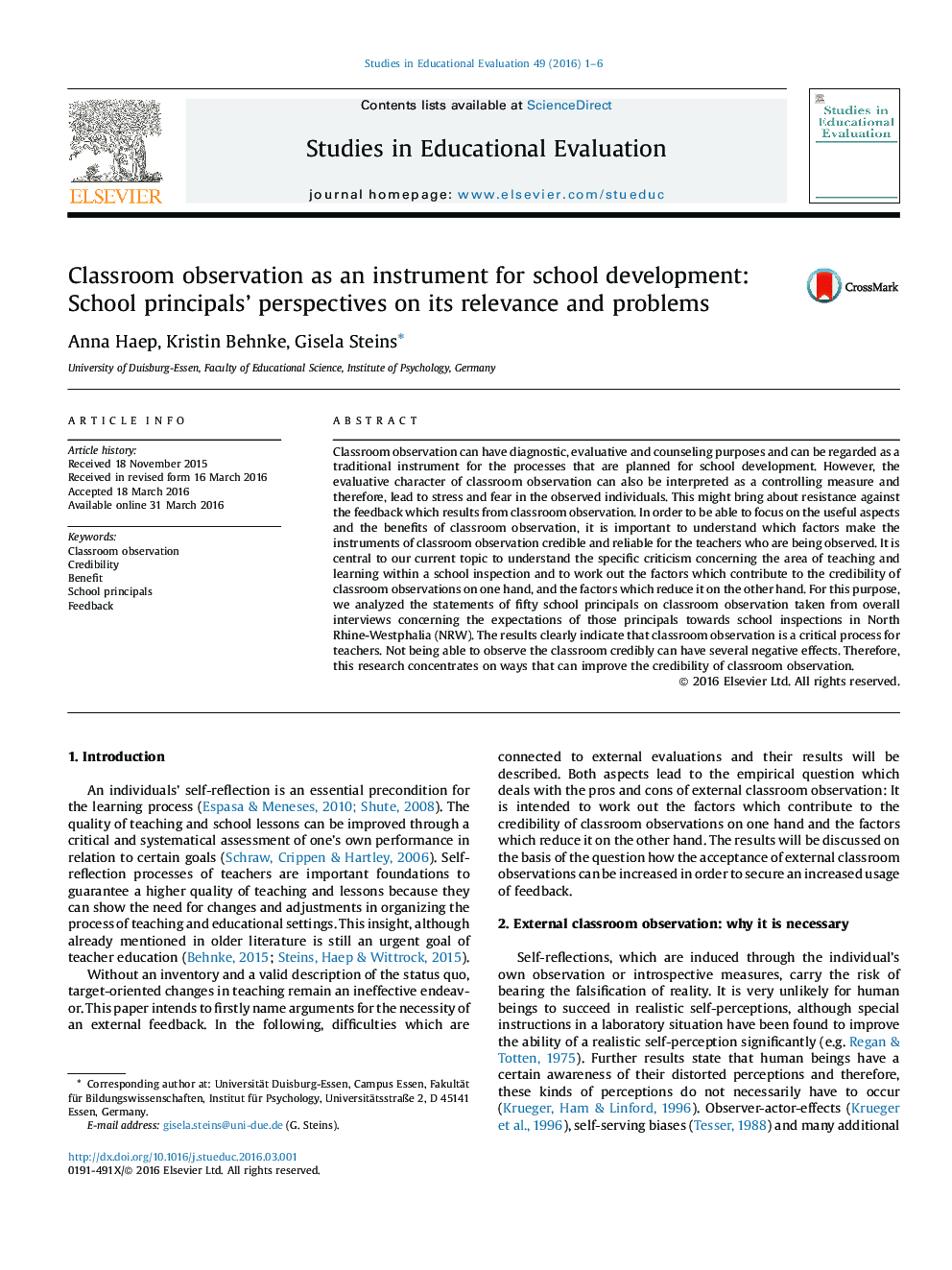| Article ID | Journal | Published Year | Pages | File Type |
|---|---|---|---|---|
| 372567 | Studies in Educational Evaluation | 2016 | 6 Pages |
•Classroom observation as feedback tool may enhance improvement in teaching practice.•Feedback may lead to rejection and further protection mechanisms in individuals.•Classroom observations are perceived highly critical by school principals.•Classroom observations may arouse stress and fear in the teaching staff.•External feedback should be used as stimulus and motivation rather than pressure.
Classroom observation can have diagnostic, evaluative and counseling purposes and can be regarded as a traditional instrument for the processes that are planned for school development. However, the evaluative character of classroom observation can also be interpreted as a controlling measure and therefore, lead to stress and fear in the observed individuals. This might bring about resistance against the feedback which results from classroom observation. In order to be able to focus on the useful aspects and the benefits of classroom observation, it is important to understand which factors make the instruments of classroom observation credible and reliable for the teachers who are being observed. It is central to our current topic to understand the specific criticism concerning the area of teaching and learning within a school inspection and to work out the factors which contribute to the credibility of classroom observations on one hand, and the factors which reduce it on the other hand. For this purpose, we analyzed the statements of fifty school principals on classroom observation taken from overall interviews concerning the expectations of those principals towards school inspections in North Rhine-Westphalia (NRW). The results clearly indicate that classroom observation is a critical process for teachers. Not being able to observe the classroom credibly can have several negative effects. Therefore, this research concentrates on ways that can improve the credibility of classroom observation.
